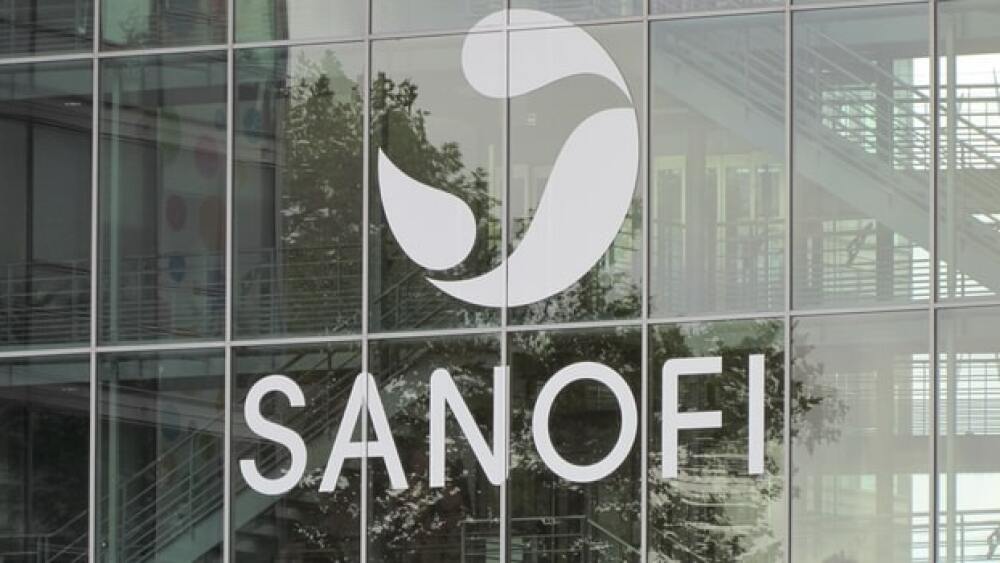THOR-707 is a non-alpha IL-2 candidate that is currently being studied in Phase I trials in solid tumors.
Keitma/Shutterstock
Sanofi is partnering with Merck to test its THOR-707 compound with Merck’s checkpoint inhibitor Keytruda (pembrolizumab) in solid tumors. THOR-707 is a non-alpha IL-2 candidate that is currently being studied in Phase I trials in solid tumors.
The two companies will launch a Phase II trial to evaluate the combination’s safety, pharmacokinetics and preliminary efficacy in a variety of cancers. Sanofi also is studying THOR-707 with other anti-PD-1 checkpoint inhibitors, including its own Libtayo (cemiplimab-rwlc) developed in cooperation with Regeneron, and with anti-EGFR and anti-CD38 antibodies.
Sanofi is sponsoring the Phase II trial and Merck is providing Keytruda.
“We believe that THOR-707 has the potential to become a foundation of the next generation of immuno-oncology therapies,” said Peter Adamson, Sanofi’s Global Head, Oncology Development and Pediatric Innovation. “This collaboration with Merck will enable us to explore whether THOR-707 can increase and expand the effectiveness of Keytruda and improve the outcomes for patients with cancer.”
In preclinical investigations, THOR-707 induced CD8+ T-cell expansion which has antitumor effects both alone and in combination with checkpoint inhibitors. The compound is the first molecule out of Sanofi’s Synthorin platform, which they believe can create next-generation precision medicines for cancer and autoimmune diseases.
Sanofi picked up THOR-707 when it acquired Synthorx in December 2019 for $2.5 billion. Synthorx is headquartered in San Diego, California. THOR-707 was the company’s lead immuno-oncology product candidate. Sanofi picked up other earlier-stage cytokine programs in the deal, which was to enhance Sanofi’s oncology and immuno-oncology portfolio.
At the time, John Reed, Sanofi’s Global Head of Research & Development stated, “Synthorx’s exceptionally novel discovery platform has already produced a molecule that has the potential to become a foundation of the next generation of immuno-oncology combination therapies. By selectively expanding the number of effector T-cells and natural killer cells in the body, THOR-707 can be combined with our current oncology medicines and our emerging pipeline of immuno-modulatory agents for treating cancer. Moreover, Synthorx’s pipeline of engineered lymphokines has great promise not only for oncology but also for addressing many autoimmune and inflammatory diseases.”
Sanofi expects a full readout on Phase I results, which is basically a dose-ranging study, by 2021.
THOR-707 was developed by Synthorx under then-chief executive officer Laura Shawver as an alternative to Proleukin. Proleukin’s safety profile was problematic, and included vascular leak syndrome (VLS). In a 2018 S-1 filing, THOR-707 was described as utilizing synthetic genetic alphabets and was designed to “kill tumor cells by increasing CD8+ T and NK cells without causing VLS that has been observed with aldesleukin.”
Sanofi also reported its third-quarter earnings today, noting new sales of €9.479 billion, up 5.7%. Specialty care sales grew 23.8%, driven by Dupixent, and vaccine sales were up 13.6%, pushed along by record flu vaccine sales partly offset by decline in boosters, travel and the meningococcal bacteria vaccine Menactra due to COVID-19.
“We achieved a strong quarter supported by solid sales from both Dupixent and Vaccines which allows us to upgrade our full year guidance,” stated Paul Hudson, Sanofi’s chief executive officer. “We remain focused on executing on our strategic priorities that will deliver promising medicines to address significant patient needs. To this end, we strengthened our R&D pipeline with the successful completion of the Principia acquisition, adding multiple BTK inhibitors to address a variety of serious illnesses. Our COVID-19 vaccines development efforts continue on a fast track along with ensuring global access with pre-orders signed with major countries, regions, and non-profit organizations who will work to distribute the vaccine to those who most need it.”





